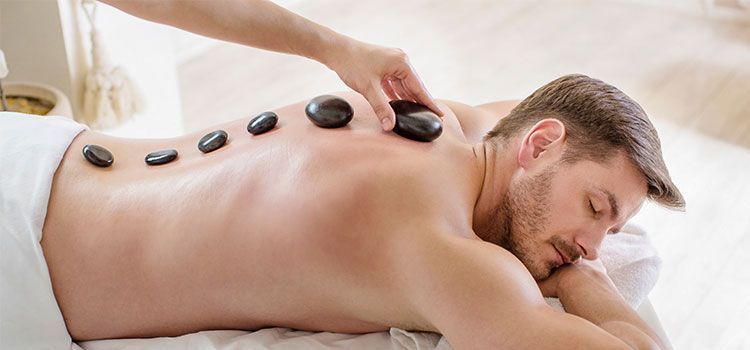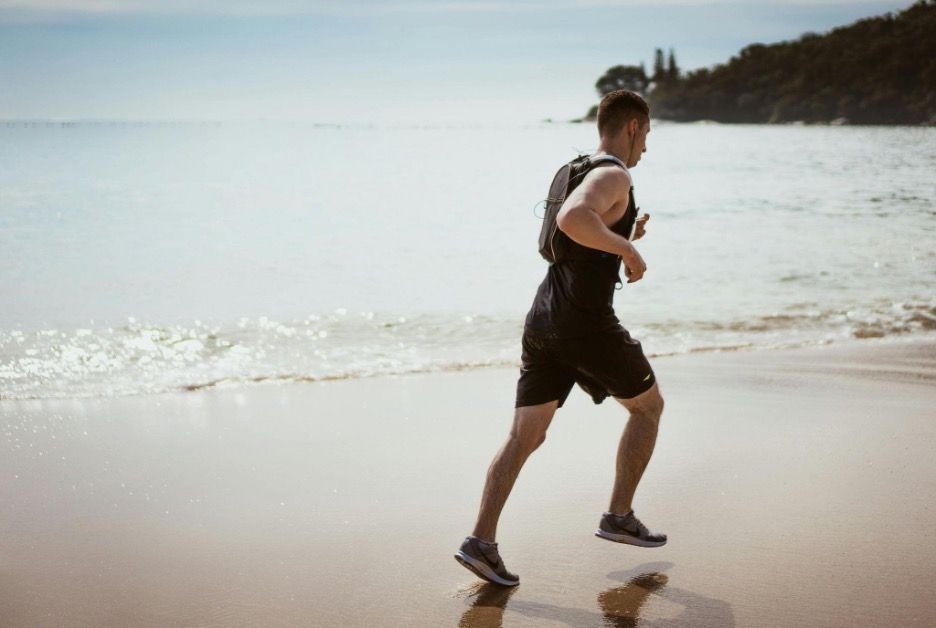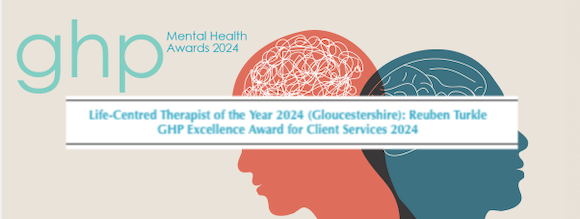On Being Compulsive
websitebuilder-hub
On Being Compulsive
It is 01:12am, Friday 27th of November 2020. My wife and I had a perfectly normal evening. Of late, that means I cook a nice meal whilst enjoying a couple of beers, whilst she sips a cider, the children settling down upstairs. Then more often than not since lockdown, we will crack open a bottle of red, watch some tv and around 10:30pm, after the evening news, head to bed – much like many other households. So why then am I up writing this, you may be asking? Because, I have woken with my latest compulsion, the incessant need to itch. I cannot fathom why? In the past, I have had a fungal skin issue, which does cause mild irritation and seems determined to remain no matter how many times I treat it. But this has caused me little or no bother. The itching is unbearable, all across my shoulders, arms and thighs. It prickles like a rash and yet there are no visible markings, apart from the remanence of the skin issue in some, but not all areas. So here I am, writing this blog in a vain attempt to make it go away and get back to sleep – something else I am not particularly good at.
Previously, around a year ago, I developed excoriation disorder or dermatillomania, a compulsive desire to pick at the skin. Mania, huh, that sounds about right, it certainly begins to drive me a little mad! Apologies, this isn’t pleasant reading, but in my case I picked to the degree that I would draw blood and was left with pockmarks and scarring on the areas I would do this. The only common theme is that this also happened when I settled to go to bed. During the day, when in the throes of my usual routines, not even the slightest itch seems to tempt me into this silly habit.
All this got me thinking, what makes us develop these compulsive habits? So, like most people these days, I asked Dr. Google. We are all familiar with obsessive compulsive disorders, ranging from triple checking if the door is locked, to severe anxiety at a seemingly benign issue such as a misaligned carpet. It is commonly known that these anxieties are masking a more real underlying issue that needs addressing, usually with talking therapies such as counselling. But low and behold, the first article I read in Psychology Today, states that –
‘Related to obsessive compulsions are body-focused repetitive behaviors {sic} (BFRBs), such as hair-pulling and skin-picking. In some cases, BFRBs are engaged in to decrease anxiety’.
So, does this mean this is a healthy coping mechanism? Rather than a more logical medical explanation such as an allergy or reaction to the latest washing powder on our clean linen? If it is a healthy coping mechanism, should I be concerned with what the underlying anxiety is? As a therapist, it would appear a little hypocritical not to address this. After all these compulsions only provide short term and temporary relief. In some extreme cases, they become unhealthy coping mechanisms, obsessions that begin to take over people’s lives. Then they really do need to seek help. Let’s hope I don’t become some itching maniac who people stare at in public then.
We know that these compulsions can arise after a period of stress, or even as a consequence of trauma. In some cases, survivors of abuse will develop compulsive behaviours. Doctors will prescribe anti-depressants or serotonin reuptake inhibitors (SSRIs) – to me this seems extreme, though I understand why people would resort to taking these medications. After all it can become insufferable. Other treatments for these wide-ranging conditions might include hypnotherapy, counselling, acupuncture, Chinese medicine or any other popular alternative medicine or natural remedy. Compulsive behaviours are very wide-ranging too, including hoarding, compulsive shopping, gambling, hair pulling and nail biting to name just a few.
In the cases, of hoarding or gambling for example, people can develop long term and debilitating problems that can cause significant damage to them and those around them. This is when a compulsion becomes a problem, and it is time to seek help. But for now, the clock has struck 2am and it is time I go back to itching and hopefully sleeping too.

Often, when we are stressed out or in anxious mind, we can easily overlook what is going on for us physically. The overthinking becomes all consuming. The ruminating mind battles to find solutions, a way out. The multi-directional thought processes, for some can become unbearable. Neurologically, our central nervous system is in overdrive, it cannot get a break. Within our brains, this is our amygdala where we process emotions firing on all cylinders. The frontal lobe, where we find logic has been dampened or even shut down, hence why we feel so anxious. At its worst case, this can lead to debilitating panic attacks. This is why simple breathing techniques can help us reconnect to calming the central nervous system. Just three deep breaths can have an immensely grounding effect. What we do know is that self-care and tuning into somatic or bodily responses to stress and anxiety can be the perfect antidote. In the below blog, Holistic Therapist/Mentor, Kayleigh Hawkins explains how hot stone massage is just one of many options to tune into our bodies, alleviating the overthinking mind, physical strains and stresses of everyday life. Over to Kayleigh… Firstly let's look at stressors, you may not be able to control the stressors, but you can control how you react to them! One of the best ways to get in the right mindset to tackle your stressors head-on is by focusing on your internal and external wellness. Some of the most helpful self-care strategies are things that we can look forward to doing, such as booking a hot stone massage. A hot stone massage is the ultimate “treat yourself” moment that offers relaxation by using massage and heat therapy to calm your nervous system and jumpstart mental and physical healing. Ready to book the ultimate “ahhhhhh” moment? Here’s everything you need to know before you book a hot stone massage. What is a Hot Stone Massage? A hot stone massage is a massage in which the massage therapist places smooth, hot stones on your back. These stones provide heat therapy to the muscles, which can help reduce tension and pain. The stones used in hot stone massage are typically basalt, volcanic rock that is usually high in iron, which allows them to absorb heat. The placement of the stones during a hot stone massage will depend on the muscles and tissues that are being worked on. For example, if you have lower back pain, the masseuse may place the hot stones along your spine. The technique that the massage therapist uses with the hot stones will depend on your specific needs. Therapists often use circular movements, kneading, long strokes, and vibrations. Why Get a Hot Stone Massage? Hot stone massage can relieve pain and tension in your muscles due to the combination of massage therapy and heat. Heat is often recommended as a way to treat achy muscles. Applying heat to an area of the body helps increase blood flow to that spot, which improves healing. People that regularly book hot stone massages may: Sleep better Decrease their stress and anxiety levels Loosen tight or sore muscles Improve blood circulation Relieve symptoms of arthritis Reduce pain and inflammation Increase metabolism How to Prepare for Hot Stone Massage It is important to make sure you are well hydrated both before and after your session. It is also advised not to eat any large meals prior to your appointment. Dress comfortably. Need help booking a relaxing hot stone massage Check out Just Breathe Therapies

Photo via Pexels In a world where fast food is more accessible than fresh produce and sedentary lifestyles are the norm, battling obesity has become a central issue for many men. Your health is your wealth, and by adopting a wellness-focused approach to life, you can fight obesity and reclaim your vigor. This journey requires dedication, discipline, and a comprehensive strategy that goes beyond mere dieting. In this article, courtesy of RT Counselling , we’ll go over a few ways you can stay fit by incorporating lifestyle changes into your daily routine. Fit Fitness into Your Busy Schedule Balancing a busy schedule with fitness can seem daunting, but incorporating small exercises throughout your day makes a big difference. Opt for stairs instead of elevators and embrace a brisk walk during lunch. These simple swaps fit seamlessly into your daily routine , enhancing fitness without demanding extra time. Such strategies ensure you stay active, combating obesity effectively amidst a hectic life. Unwind and Thrive Your body reacts to stress by releasing cortisol, a hormone that can lead to weight gain, especially around your midsection. Counteract this by integrating stress-relieving practices into your everyday life. Activities like yoga, meditation, and deep breathing not only reduce stress but also improve your emotional wellbeing , making you less likely to turn to food for comfort. By addressing stress head-on, you're laying a strong foundation for a healthier lifestyle that combats obesity. Find Your Fitness Passion Exercise shouldn't be a chore. To sustain an active lifestyle, it's crucial to discover activities that excite you. Whether it's the tranquility of swimming, the adventure of hiking, or the camaraderie of team sports, finding what you love is key to maintaining motivation. When you look forward to your workouts, staying fit becomes a part of your life rather than a dreaded task, making it easier to keep obesity at bay. The Power of Sleep Never underestimate the role of sleep in your fight against obesity. Adequate rest is paramount for regulating the hormones that control hunger and fullness. Ensuring you receive enough high-quality sleep each night can prevent overeating and help maintain a healthy weight. Consider your bedroom a sanctuary and prioritize conditions that promote restful sleep, such as minimizing screen time before bed and maintaining a consistent sleep schedule. Mental Health Matters Obesity and mental health are intricately linked. Issues such as depression and anxiety can lead to unhealthy eating habits and weight gain, but many men find it challenging to ask for help. Acknowledging and addressing any mental health disorders is crucial in your journey towards wellness. Don't hesitate to seek professional help when needed and incorporate practices that reduce stress into your routine. Often the shame and self-loathing assosciated to weight can be prohibiting and talking through and addressing these feelings can help get better control of them. A healthy mind is just as important as a healthy body in your fight against obesity. Hydration is Key Drinking water is essential for overall health and can be particularly helpful in managing weight. Often, our bodies can confuse thirst with hunger, leading to unnecessary snacking. By staying well-hydrated, you support your metabolism and help suppress appetite, making it easier to avoid overeating. Aim to drink water throughout the day, especially before meals, to aid in digestion and weight management. It’s also crucial to ensure that your body is getting enough water as you workout , so keeping a water bottle with you is advisable. Mastering Portion Control In today's supersized world, understanding portion sizes is more important than ever. Overeating, even healthy foods, can contribute to weight gain. Use tools like smaller plates and measuring cups to serve your meals, and listen to your body's hunger cues to avoid mindless eating . This simple yet effective strategy can help you enjoy your meals without falling into the trap of overindulgence. Embrace a Balanced Diet A nutritious diet is the cornerstone of any weight management plan. Focus on filling your plate with a variety of whole foods , such as fruits, vegetables, lean proteins, and whole grains. These foods are not only rich in essential nutrients but also high in fiber, which can keep you feeling full longer. By embracing moderation and variety in your diet, you can satisfy your taste buds while nourishing your body and combating obesity. For men, tackling obesity requires a holistic approach that goes beyond dieting and exercise. By integrating stress management, finding joy in physical activity, prioritizing rest, fitting exercise into a busy schedule, addressing mental health, staying hydrated, practicing portion control, and eating a balanced diet, you can create a sustainable lifestyle that promotes weight loss and improves overall health. Remember, the journey to wellness is a marathon, not a sprint. With perseverance and a positive mindset, you can achieve your health goals and enjoy a vibrant, fulfilling life. Ready to make a positive change in your mental health and overall wellness? Get in touch with the team at RT Counselling today to talk about your needs.










